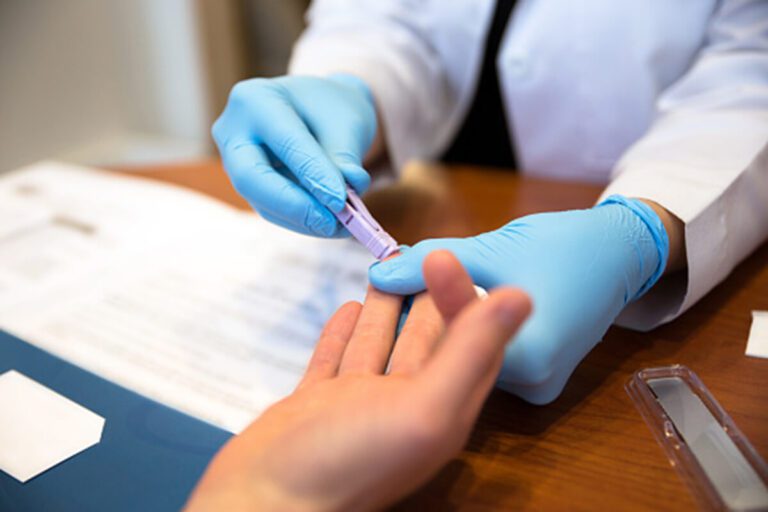The Link Between Gut Health and Immune Response
Most people think of the gut as just a place where food gets digested, but it’s much more than that. Your gut is home to trillions of bacteria that play a huge role in your overall health, especially when it comes to your immune system. A strong immune response starts with a healthy gut, and when things are out of balance, your body becomes more vulnerable to infections and diseases.
If you’ve ever wondered why some people rarely get sick while others catch every bug that comes around, the answer may lie in gut health. Let’s break down how your digestive system and immune system work together—and what you can do to keep both in top shape.
How Gut Health Affects Your Immune System
Your gut and immune system are closely connected. About 70% of your immune cells live in your digestive tract. This means that what happens in your gut directly affects how well your body can fight off harmful bacteria, viruses, and other threats.
1. Gut Bacteria and Immune Defense
Inside your gut, there are good and bad bacteria. The good bacteria help digest food, absorb nutrients, and keep harmful microbes in check. When these bacteria are balanced, your immune system functions properly. But when the bad bacteria take over, your body may struggle to fight off infections.
2. The Gut Barrier and Inflammation
Your gut lining acts as a barrier, preventing harmful substances from entering your bloodstream. When this barrier is strong, it keeps toxins and harmful bacteria out. But if it gets damaged, these harmful particles can slip through, triggering inflammation and weakening your immune system.
3. Gut Microbes and Immune Training
Your gut bacteria “train” your immune system by helping it recognize which bacteria are good and which are harmful. This process is crucial for preventing autoimmune disorders, where the immune system mistakenly attacks healthy cells.
Signs of Poor Gut Health
If your gut is in bad shape, your immune system might not be working as well as it should. Here are some common signs that your gut health needs attention:
- Frequent infections – If you catch colds and flu often, your immune system may be struggling.
- Digestive issues – Bloating, constipation, diarrhea, and stomach pain can signal an imbalance.
- Skin problems – Acne, eczema, and other skin conditions are often linked to gut health.
- Chronic fatigue – Poor gut health can lead to nutrient deficiencies and low energy levels.
- Food sensitivities – If certain foods suddenly upset your stomach, it could mean your gut is inflamed.
Also Learn About: The Role of Meditation and Stress Management in STD Management
Ways to Improve Gut Health and Boost Immunity
The good news is that improving your gut health can strengthen your immune response. Here are some simple ways to do it:
1. Eat More Fiber-Rich Foods
Fiber feeds the good bacteria in your gut, helping them thrive. Foods like fruits, vegetables, whole grains, and legumes are excellent sources.
2. Add Probiotics and Fermented Foods
Probiotics are live bacteria that support gut health. You can find them in foods like yogurt, kefir, sauerkraut, and kimchi. If you don’t eat these often, probiotic supplements can also help.
3. Cut Down on Sugar and Processed Foods
Too much sugar can feed harmful bacteria and cause an imbalance. Reducing processed foods and sugary drinks can help restore gut health.
4. Stay Hydrated
Drinking enough water helps with digestion and keeps your gut lining healthy. Aim for at least eight glasses a day.
5. Get Enough Sleep
Lack of sleep can disrupt your gut bacteria and weaken your immune system. Try to get 7-9 hours of good-quality sleep each night.
6. Manage Stress
Chronic stress harms your gut and weakens your immune system. Activities like exercise, meditation, and deep breathing can help keep stress levels in check.
7. Consider Prebiotic Foods
Prebiotics are foods that feed good bacteria. Bananas, onions, garlic, and asparagus are great options.
The Role of Gut Health in Fighting Infections
A healthy gut doesn’t just prevent common colds; it can also lower the risk of more serious infections. Studies show that people with a well-balanced gut microbiome recover faster from illnesses and respond better to vaccines.
If you’re concerned about infections, including sexually transmitted diseases (STDs), keeping your gut in good shape can make a difference. Regular check-ups and screenings are important for overall health. For those in Jacksonville, Florida, getting tested at an STD Testing Jacksonville, FL clinic can help detect infections early and keep your immune system strong.
The Connection Between Gut Health and Autoimmune Diseases
Autoimmune diseases occur when the immune system mistakenly attacks the body’s own tissues. Conditions like rheumatoid arthritis, lupus, and Crohn’s disease have been linked to poor gut health. Scientists believe that when the gut barrier is damaged, harmful bacteria enter the bloodstream and trigger an immune response that leads to chronic inflammation.
By improving gut health, some people with autoimmune conditions experience fewer flare-ups and better overall health.
Why Gut Health Matters for Overall Well-Being
Your gut affects more than just your immune system. It also plays a role in:
- Mental health – The gut produces neurotransmitters like serotonin, which influence mood and brain function.
- Heart health – Some gut bacteria help regulate cholesterol levels and blood pressure.
- Weight management – A healthy gut can improve metabolism and digestion.
Taking care of your gut is one of the best things you can do for your long-term health.
FAQs
Can Poor Gut Health Make Me More Likely to Get Sick?
Yes. An unhealthy gut weakens your immune response, making it easier for infections to take hold.
How Long Does It Take to Improve Gut Health?
It depends on your diet and lifestyle. Many people notice improvements within a few weeks of making healthy changes.
Are Probiotics Necessary for a Healthy Gut?
While probiotics can help, they’re not the only factor. Eating a balanced diet and avoiding processed foods are just as important.
Can Gut Health Affect STD Risk?
While gut health doesn’t directly cause or prevent STDs, a strong immune system helps your body fight infections. Regular screenings at an STD Testing Jacksonville, FL clinic can help you stay on top of your sexual health.
Final Thoughts
Your gut and immune system work together to protect you from illness. Eating the right foods, managing stress, and getting enough sleep can improve your gut health and strengthen your immune response.
For those in Jacksonville, Florida, maintaining good health includes regular medical check-ups and screenings. Whether it’s boosting your immunity or checking for infections, taking proactive steps can make all the difference.
A healthy gut is the foundation of a strong body—start taking care of yourself today.
Related Tag: Free STD Testing Jacksonville






